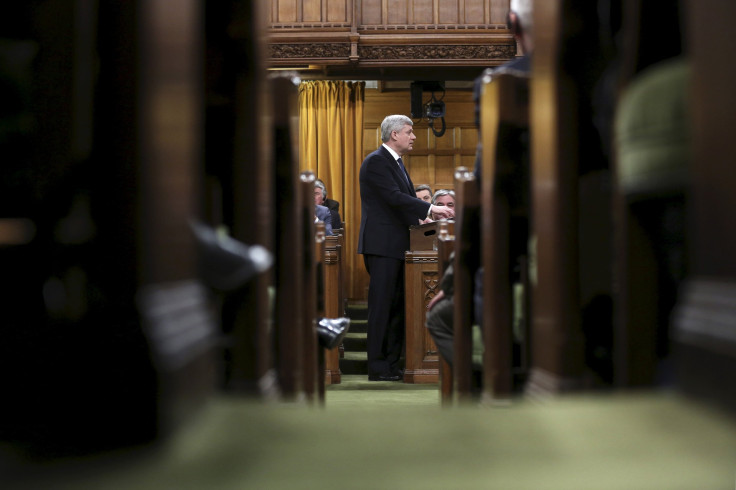Canada To Remain With US-Led Coalition Until March 2016, Wants Anti-ISIS Bombing Expanded To Syria

Ending weeks of speculation, Prime Minister Stephen Harper has finally unveiled before the House of Commons on Tuesday a new military plan against the ISIS Daesh in the Middle East. He specifically wants a longer participation in the U.S.-led coalition until March 2016, as well as the approval to stage Canadian air strikes in Syria.
The extension and expansion were needed because the ISIS Daesh threat “is very real for this country,” Mr Harper said. He noted to the Parliament members how the group and its supporters called on actions to target Canada as well as Canadians both at home and abroad.
The NDP and Liberals are concerned the expanded airstrikes to include Syria will give off a different signal that would mean helping the regime of President Bashar al-Assad ward off rebels. “This is a man who has used chemical weapons on his own citizens and whose regime is responsible for torturing and killing many more innocent people than even ISIL,” Ottawa Citizen quoted Liberal Leader Justin Trudeau. “We cannot support a mission that could very well result in Assad consolidating his grip on power in Syria.”
Mr Harper responded Canada’s airstrikes will be coordinated with the U.S. and other allies. The approval of the Syrian government will not be solicited before and in every airstrike, he said.
He likewise reiterated that Canada, should the expansion and extension be approved, will not deploy additional troops or aircraft to the region, nor even deploy special forces troops into Syria. “In this motion, the government has no intention of having our special forces operating in Syria,” Mr Harper said during question period.
Canada has 69 special forces troops training Kurdish forces in northern Iraq. One of them had died in a mistaken case of identity accident with the Kurds. Canada’s first mission likewise involved six fighter jets, two surveillance aircraft, an air-to-air refuelling plane and 600 support personnel.
Canada's requested motion was presented on March 24.
To report problems or to leave feedback about this article, email: e.misa@ibtimes.com.au.




















